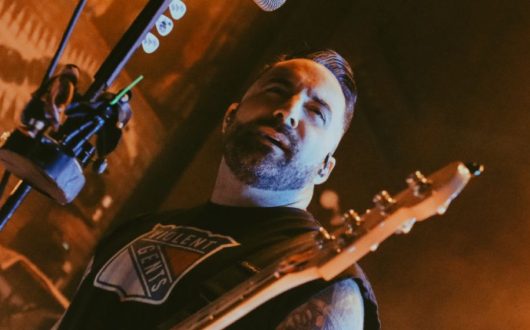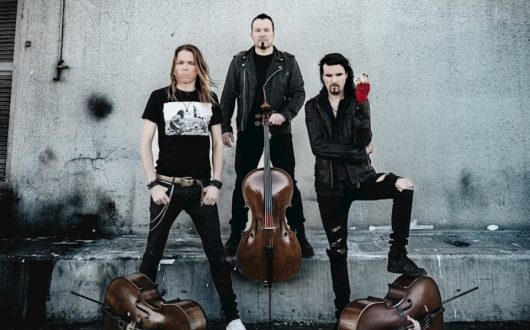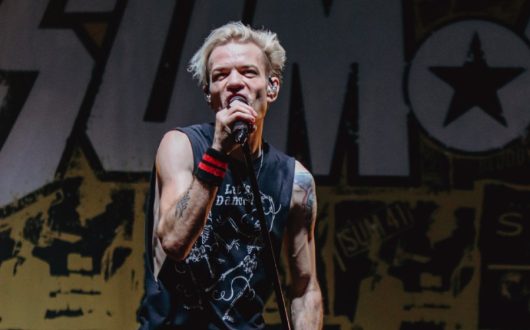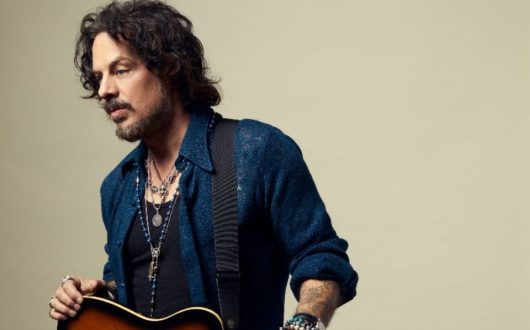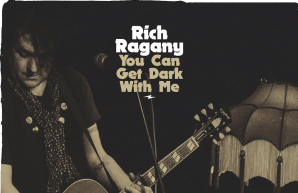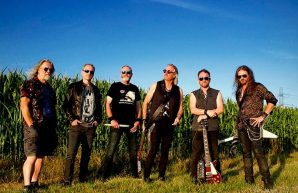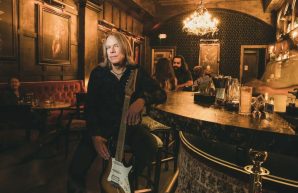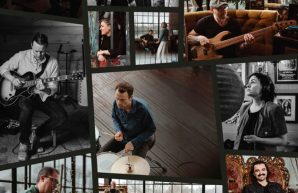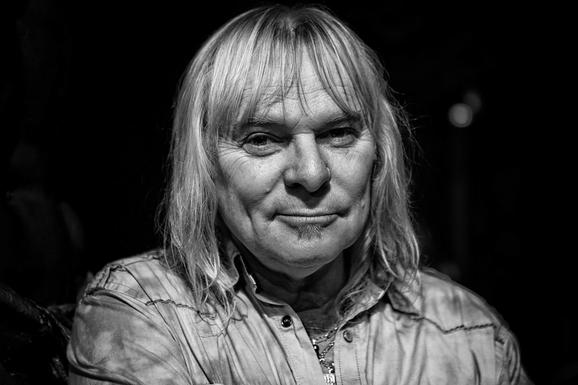
Interviewed by Eamon O’Neill (Journalist/Writer/Contributor) Myglobalmind Webzine
Let me take you right back to the start. My first encounter with Uriah Heep was seeing a version of Easy Livin’ featuring you live from Moscow I think.
That would have been 1987 because I joined Heep in ’86.
I seem to remember the crowd were very well behaved, all suited and booted.
There was eighteen and a half thousand people there every night for ten shows, but if you’ve got 300 soldiers staring you in the face with an AK47 in everybody’s hand, you do tend to behave.
That applies to the band as well I take it?
Exactly!
That’s a long time ago now. Do you think it’s safe to say you got the gig then?
Well after twenty-seven years I hope so. Stop calling me the new boy! Oh boy, that lasted for twenty-one years.
Your new album Outsider is about to be released on June 9th. Are you excited about getting some new product out there?
Absolutely. I mean, it’s exciting when Mick and Phil, the main song-writers in the band, when they say we’ve got some new ideas here it’s about time we got them down on tape. And then Frontiers out record label go; yeah, well Into The Wild did ok, we had a lot of fun with it, so let’s carry on the relationship. It’s a good partnership right now.
I believe it’s the twenty-forth studio album from the band, and I make it your eighth studio album, counting the ‘Celebration’ collection.
There’s a couple of live bootlegs and anniversary albums to add onto that but I think you’re probably right with just straight studio albums.
It’s quite a body of work.
Yeah, I don’t think that when Mick Box started the band back in 1970 that he ever thought in his wildest dreams that he’d be, you know , sixty years plus and still walking out on stage with the same band, albeit with different members over the years, but damn near twenty-odd years with the same boys, still packing places in and people still wanting to hear his music. He’s probably more surprised than any of us.
You’re definitely doing something right.
Well it just kinda proves that over the years a song that’s strong enough that goes to people’s hearts and stands the test of time, still likes to be heard, on stage live by a sweaty bunch of guys up there giving it their all.
I had a listen to the album today. It seems to be that the band, since 2008 when Wake The Sleeper came out have really hit a purple patch over this last few releases.
I think you’re probably right, and I’m not sure if it’s just because we’re finally happy to have a record company because the state of the music business prior to Wake The Sleeper was in such a state of disrepair, without wanting to sound politically correct. But we’re happy with the home of Frontiers, plus the change in personnel, you know Russell come in and he’s such a dynamo on the drums, and everybody’s ante went up. An unfortunately with the loss of Trevor last year, it was a bit low to everybody, but again, young blood in the form of Dave Rimmer, very much in the style of Trevor Bolder because he was such a big fan of Trev, and he’s got that fluid, very melodic style of playing. He’s not like a thumper, he really suits the style of the band and gives us a fresh energy.
Where did you find him at?
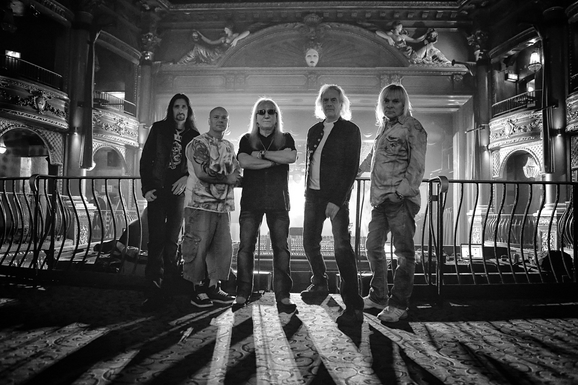
It was actually through Russell (Gilbrook, current Heep Drummer). Russell met Dave quite a few years ago back in London. Back then Russell was teaching and doing a lot of clinic stuff, and Dave was in a band and doing a lot of odd bits and pieces , doing jam sessions and open sessions and they met in a pub one night and they were playing together, and they just kind of struck it off. A typical rhythm section, they kept in touch, albeit just over the internet over the years and when we needed somebody to step up to the plate Russ said ‘I think I’ve got just the guy’. Russ had been in the band long enough to know how we work , how all our personalities jell, and he introduced Dave. And Dave just fit the glove immediately, and for his first studio outing being an album like Outsider I think he’s really stepped up to the plate, and brought beautiful and strong melodic bass lines to the band. We felt, it was really funny, you’re sitting there day after day in the studio and you feel a sense when it’s working and the magic’s really happening. You could feel that Trev was looking over us with a cup of tea in his hand. Yeah, he’s doing all right for a new boy. It’s funny, but Trevor’s presence is all over that album.
Absolutely, how could it not be?
Yeah, it’s not one of these instantaneous albums I think that you listen to and you just go ‘wow’! Bang! But it’s something that takes you on a little bit of a journey through the eleven tracks, and by the time you finally finish the last track, you kinda go ‘I think I need to listen to that again’. And you’ll find that as you listen to it more and more it really does grow on you. It’s a bit of a creeper.
It definitely retains that classic Uriah Heep sound and continues appropriately what you’ve been doing with the last couple of albums.
Well we didn’t go in with the idea of trying to reinvent the wheel. We’re a classic rock band, we know the trademarks and strengths in musicians and in writers and it’s just a matter of going in an applying ourselves as strongly as we can and playing on those points. You know, the song’s got to be a quality song, it’s got to have harmonies to it and melody. It’s got to have that driving Hammond organ in the bottom holding it all together. It’s got to have the wah-wah guitar going through it which is Mick’s strong trademark. And I think we’ve stayed true to what we know, and I’m very proud of the album, very very proud. It’s probably one of the best vocal performances I done for the entire time I’ve been with Heep.
I was going to mention that actually, the vocal performance is exceptionally strong. Is it difficult to maintain that kind of power this far into your career?
It’s actually gotten easier, because now that I’ve found my voice through Phil and Mick – they write the songs, they know what key is best for my voice, and what register is best for my range. And the more that they’ve written with me and for me the more comfortable I’ve been with the songs. A lot of bands go to the studio and they’ll spend six or eight months, bands like Metallica or Def Leppard will spend a year… We don’t work like that. I don’t think it’s in our nature. We know what we want to achieve. We go in, albeit with just a handful of ideas on this album, there was no real finished songs, and we did it all the backing tracks in two weeks. Then we had a little bit of a break, well, we went on tour, if you can all that a break.
A break from the studio.
Then we came back into the studio, and Mick and Phil were writing in the evening the lyrics of the songs I was gonna sing the next day. And I’d read them over and I’d do a few run throughs with just me and Mike Paxman the Producer and he’d go ‘Are you feeling comfortable’, and I’d go ‘Well, I wish I was singing these songs for like six months then I could really, you know give a performance’. And he said ‘well you know, just sing it’. So I just did, and he said ‘that sounds great, let’s do another one’. And I’d go ‘Come on Mike, nobody does two lead vocals in a day’. If you’re lucky, as a normal singer it might take three days to get a good vocal performance and the harmonies and everything. Well we did eleven tracks in nine days, including all the backing harmonies, and all the little ad-libs and extra vocal bits that Mike and I wanted to put on to the standard that Mike and I went ‘holy cow, did we just do that’.
You’re obviously comfortable working with him.
I like working with Mike. He brings out the best in me. There’s no animosity or forcing an issue. He listens to our ideas, we listen to his, and he’s so enthusiastic, you wanna please him. You know I want to please myself and I want to please hopefully the fans, but I wanna please Mike. And when Mike has to take a minute to take his senses back and says ‘the hair on the back of my neck was just standing up’ I know I’ve touched a nerve. Like the very beginning, the slow part of ‘One Minute’ was one take. I’d read through the lyric once, and you could have heard a pin drop in the studio control room because everybody was just gobsmacked.
One Minute was actually the first track that stood out for me. It’s got a beautifully tender and deceptive intro – you don’t realise what’s going to come next.
No. And I didn’t know there was gonna be this little – I call that a prologue, it’s like a pre-song. And it’s so beautifully written. Leaving my family and my friends back in Canada back in 1978 (voice cracks) I’m getting so choked up just thinking about it. It was so appropriate to my feelings of leaving everybody and my country behind to take such a leap of faith.
I was reading about that today. You mulled it over for a few weeks and then thought, I’m going to London.
That’s it, and once I had it in my brain, and my Dad being English, he said I’ll back you wherever you want to go. If you want to go to L.A it a probably lot easier, but I can’t get you a green card, so if you want to go all the way to England I’m behind you 100% and we can at least work out a visa for working and everything.
It must be strange to be revisiting those feelings after such a long time, as you’ve lived in England for a number of years now and made your career there.
Yeah, they just touch a nerve sometimes with some of the lyrics. One of my favourite songs of all time from Heep’s past and present is a song that Mick and Phil wrote called ‘What Kind of God’ off the Wake The Sleeper album, and I could barely finish that song live without getting choked up. It has such an emotional story behind it. It’s the story of ‘Bury My Heart At Wounded Knee’, the American tragedy of how the Indians were mistreated and the pride of I think it was the Cherokee, but wow, amazing lyrics. Mick and Phil really do write some beautiful songs together and it’s Heep through and through, you know.
I discovered the band, ironically around the time of your first album ‘Raging Silence’ and the single ‘Blood Red Roses’. That was a period of big songs, big production, big keyboards, it’s a very eighties album isn’t it?
It is very much so.
Was the band being pushed to be more commercial in those days?
Well, that’s the way that all production was. Producers all kinda sounded the same, but it started in Heep in I think the early eighties with Abominog at first. It almost sounds like Foreigner in places.
The same could be said of ‘Equator’.
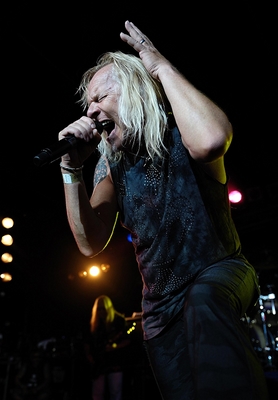
Yeah, yeah, that was the flavour of the month. That’s what the record companies wanted bands to sound like. And you know, Uriah Heep sold 40 million records. I would have thought that a record company would have allowed the band to carry on in the style that it’s used to and with a track record. But it was, ‘oh no, let’s try this producer’. Okay actually Howe (Referring to Ashley Howe, producer of Abominog), who produced the album at the very top of his game and got that American top 40 sound and it did very very well for the band especially in America. But I think they lost a little bit of the Englishness, the quickness and the power that American bands just don’t have. English bands have got it by the bucket full. I think we’re back now to where we want to sound.
Well actually that’s where I was going to come back to. With Wake The Sleeper the band went back to the sound of those early albums like Demons and Wizards and The Magician’s Birthday.
It’s because we’re recording the way they used to. You know for a while there it got to the point where the guitarist is in one section of the room, the drummer is all isolated in a booth, the bass player’s back line you can’t even see because it’s all DI’d, and you’re all segregated and you play but we’re only gonna record the drums. And then we’re gonna go back and record the rhythm guitar. Then we’re gonna go back and do a ‘guide bass’, and it’s like a layer of pancakes a mile high.
It takes the spontaneity off it I suppose.
The thing is we set up in one room. All the mikes are open, you got you’re working sound and the drum mikes are gonna bleed anything that the guitar’s a bit loud on, and the Hammond organ’s just cranking through the roof, it’s gonna bleed onto the drum mics. You got four guys sweating, playing the song like the do live on stage, and that power and that magic goes on the tape. You can’t do that when you’re segregating everybody and you’re doing one thing at a time. It’s too isolated. It’s too sterile and digital. We try to record as close to analogue as we can. Mick has always used a 100 watt Marshall Amplifier with tubes, Dave uses a huge big SVT bass amp with tubes, Phil’s got this whacking great Hammond organ with a Leslie speaker – it’s glowing like it’s on fire with tubes: That’s the sound of the Seventies.
Moving on then, you’re touring Europe with the album very soon.
I’ve just got back five days ago. We were down in South America for two weeks. And we just got back late Thursday night. Just enough time to see the family and spend a little bit of quality time. Tomorrow the suitcase is packed and we’re off again to the Northern Hemisphere this time up around Scandinavia – Norway, Sweden and Finland for another two weeks.
A few years ago you performed Demons and Wizards in full at the High Voltage Festival in London.
We did. It was a bit strange, but that was one of the prerequisites of playing that gig. If we wanted to do it, we had to do Demons and Wizards. Now, we’ve never done that before but we said, well we don’t get to play that often in the UK, so let’s do it. So it was a lot of fun for us revisiting a whole album and have Mick Moody up there from Whitesnake playing the slide guitar, it was a lot of fun.
I read a quote where you said it was very strange to open the show with an acoustic track.
It was The Wizard! Oh my lord, very, very funny. That’s not the way we construct a live set. We come in with, you know, all guns blazing with the first two songs, and then we kind of hit medium tempo, old classic stuff and then slowly make it climb then bring it down with a ballad. And then, you know one hundred miles an hour until the end. You graph it out on how to play with people’s emotions and feelings. And tempos with songs with different chord structures and what key works better to follow what song with. I mean, it’s not just a handful of songs thrown into a hat. We really take our time putting a det together of almost two hours.
Well I suppose you’ve got plenty of material to choose from.
Well we’re in a very enviable position that you know, the well is there that we can dive into, and the history of the band really gives us some good strong songs. And do an album, you know, you go, just a minute, the albums back then were only like forty minutes long, and we’re asked to play an hour or whatever, but they say ‘no we only want ‘Demons and Wizards’! Well okay… but it also opened the door to take us back to Japan and we hadn’t been there since 1991.
And of course you played at the Download Festival at Castle Donington last year.
Yes! And that really was fun. Okay it was early on in the afternoon, we were on about three o’clock, and it was the Friday, so I don’t know where 33,000 people got the day off work, but it wasn’t a bad turnout. And I think we had a fantastic reception.
The band had played there in 1982 I believe, before you had joined.
Yep, Mick still has the poster. It was still a one day event, and Ian Gillan was there and AC/DC was there. It was still Donington I think.
Before you joined Uriah Heep were there any other offers that came your way?
Not known to me. The fact the Praying Mantis went through so many guises, Clive Burr’s Escape ant then Stratus, which was all the same band, bar the drummer. The management was trying to look for something and a new home for me. But it’s one of these things that you find out twenty years after the event, you know that somebody puts you up do such-and-such a gig, and you go ‘huh’?! When Journey were looking for a new singer and I was not in Heep at the time, when I heard that Steve Perry was leaving I went, you know, ‘I could handle that gig’. I mean I wouldn’t want to live in America, not that I’ve got anything against America but I just don’t know if I could actually live there. I could live in Vancouver, but… oh boy. And then Styx were looking for a new lead singer and they ended up with a Canadian guy, a guy Gowan, but he’s more Keyboards / Singing rather than just lead singer.
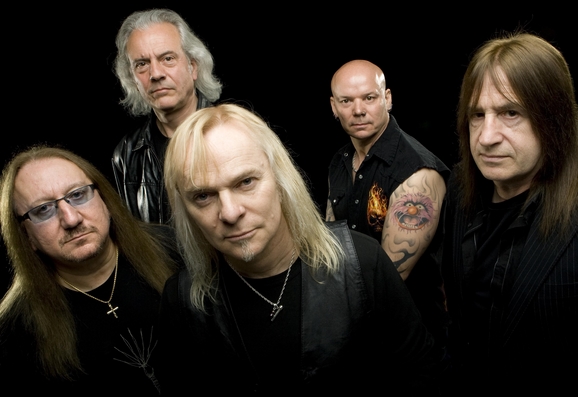
Did you actually put yourselves forward for these gigs?
No, it was all, you know, pipe dreams, but you know I thought if nothing comes through my mailbox or nothing or no-one comes knocking at my door I’ve got to keep something in the back of my mind and it’s got to be of a certain calibre, so I thought you know, why not? There are some top bands out there looking for somebody. If you don’t ask, you don’t get.
But you’re happy with the audition you got in 1986 though?
Ab-so-lutely! I’m still here, and we’re all having fun. We’re all being creative. I think that the band is absolutely on fire right now. I think it’s got the spontaneity and the strength in its live show to put any other Uriah Heep line-up right up on par. We’re in an enviable place. I’ve got my best friend on guitar. We’re five guys who spend so much time together but we’re actually just five friends that happen to be in the same band.
There are not many that can say that. A lot of bands seem to be more business partners these days.
Business partners and, there are certain bands that with them, not naming names that have had some big tours and had some classic songs over the years and are still going strong, probably even stronger than us, but they work on a friction element rather than a friendly element. They ‘jar’, but in that jarness there’s a magic. In Heep, there’s camaraderie, and that’s our magic. It’s a lot nicer to come down to a hotel lobby and have breakfast with your mate rather than sit across the hotel restaurant going *grumbles*… under your breath! And there are bands out there that work on that friction, and I almost feel sorry for them. I can’t feel sorry for them ‘cause they’re all successful bands, probably even more successful that Heep, and they’re still at the top of their game. But it’s just not the way that we work.
Have you got any particular favourites from your time with Heep?
Raging Silence was a really cool album. Between that and Sea of Light, they just touched nerves. Yeah different ones, and I’m a true gemini so what I might tell you today might totally change in two weeks time. But Sea Of Light was the one that really struck me that I was allowed to explore my voice for the first time rather than being lead somewhere, which I had no problem doing because I had no idea what ‘I’ sounded like. On the other recordings I was told ‘can you sound a bit like this guy, can you sound a little bit like that guy’, and being from Canada and a top 40 band that was my forte – ‘who do you want me to sound like and I’ll do my best to emulate’. Whereas when I joined Heep it was, no, we want your voice, and that’s where I was a little bit lost and had to be nurtured along the way. With Sea Of Light, that was the first one where I actually sat back and went, holy cow, who is that singing? That’s me! That’s ‘me’ me, not trying to be blah, blah, blah….
You had found your feet.
Totally, and I think since then it’s become a lot easier, and definitely from Wake The Sleeper. I’m really happy and comfortable in my boots now.
Wake The Sleeper is a monster of an album.
It really is I have to admit. Even more than Into The Wild. It ticks every box.
When you drop the needle on that record and you hear that wah-wah guitar and those drums, it’s quite a statement.
And you know we took quite a chance on that. We played the entire album live on that road tour. I mean, a lot of band’s really fall on their butt by doing that. The audience want only a few new ones and then all the classics, especially with a band like us with such a longevity and such a history. But, we went no, we’ve got to try this. And from show one, everybody was standing there with their mouths open. And it was like, well, they’re not leaving, so… And it really was such a brilliant live tour, that whole year and a half because people were just absolutely shocked at the power and veracity of all the songs. It was wow! One after the other then the other then we’d hit them with a classic one, and then we’d hit them with two or three other new ones and then another classic one. But they did get the set peppered with classics, but they got the entire album and it was just amazing.
There was obviously ten years between Sonic Origami and Wake The Sleeper and I suppose you needed that statement in intent.
That’s why we went with the title ‘Wake The Sleeper’. We had been asleep, we had been in the background waiting for the music business, with all the computer and internet stuff that was happening. It was just such a hotchpotch, you know, it didn’t work. We couldn’t get arrested, we couldn’t find a company that we’d feel comfortable with, and by the time we did we went we’ve got to make a serious statement.
I’m sure it was frustrating leading up to 2008, but do you think that in hindsight now it’s better that there was nothing and then bang, you come back with an absolute corker of a statement?
Well, ten years is a long time, and the thing is Mick and Phil as writers had such a backlog of finished and unfinished songs that when we came down to doing Wake The Sleeper we probably could have made a double album. And it’s a bit of a waste to have a good song and not have it have its time, recorded properly and out there on the world’s stage. Unfortunately it was just the state of the music business at the time. I think we lost something, but to come back with such a statement , no I got no qualms about it.
If you look at the mid 90’s even a lot of the big bands careers nosedived.
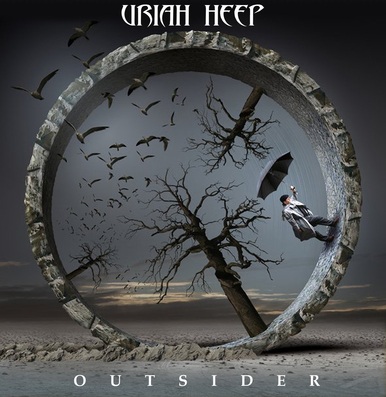
It was not a good time for rock music. I don’t think it was a good time for music, period. But definitely rock music was hit hard. We released a couple of live bootlegs, The Magician’s Birthday Party parts I, II and III, so we were still keeping our hand in but at an arm’s length.
What’s next for Uriah Heep?
As for now we’ve delivered the goods to the guys wearing the suits – they’ll be in Armani suits because they’re Italian, but let’s hope that Frontiers is as enthusiastic about it as everybody seems to be around us. This year’s looking pretty well booked up. We play just the one date in the UK at a festival in Scarborough. September and October is America and Russia, November – December is Germany, Austria, Switzerland, Belgium and Holland, and in January we’ve got a big rock cruise happening. It’s setting out from Tampa Florida with The Outlaws, .38 Special, Alice Cooper, Blue Oyster Cult. There’s about thirty-five bands playing on this boat. There’s gonna be a heck of a lot of really good music. I’m looking forward to it. Even my wife’s said ‘you’re not going there by yourself’! There’s five days sea and we only play three concerts, one in the main ballroom and then two in the different venues on the boat so there will be a lot of free time to just hang out and catch up and just shoot the garbage with the other guys on board. You can’t have that many bands on board and not be stepping on each other’s toes, so it’s gonna be a lot of fun.
https://www.facebook.com/pages/Uriah-Heep-Band/638202709583674

